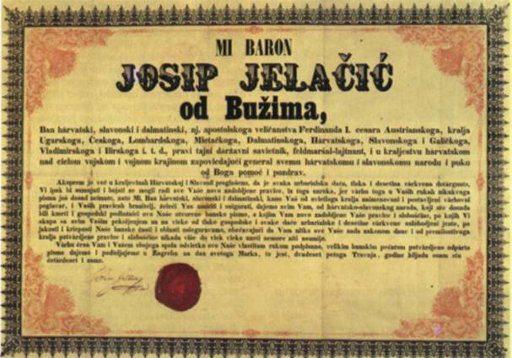Code of project: 019-0190613-0603
Leading researcher: dr. sc. Marino Manin
Reg. number at MZOS: 225693
E-mail: mmanin@isp.hr
Status of project: project within program
Program: Politika i moderni identitet u Hrvatskoj u 19. i 20. stoljeću
Affiliation: Hrvatski institut za povijest
Department: Odjel za hrvatsku povijest 19. stoljeća
Duration of project: 5 years
The research is based on the presumption that changes of political systems/state organizations, as well as radical reforms within the administration, caused a deep social transformation in Istria and had a major impact on the formulation of the self-identity on the same territory. Entire process was initiated by fundamental political and social changes that occurred soon thereafter the fall of the Republic of Venice. At the beginning of the 19th century Istrian society was fragmented and its structure was based on separated urban agglomerations. During the 19th century the structure of Istrian society had changed and by the end of that century the major part of Istria became integral part of the Croatian national space. The research of some issues represents the continuation of research that is already in progress. The main goal of the research is to explain and analyze main processes and events that marked the history of Istria during the 20th century. So, the following issues will be researched: ethnic discrimination and repression; political and military activities intended to change borders between states; tourism as the main basis of economic development and progress, modernization of the society and the crisis of identity. Ethnic discrimination, repression and totalitarian ideologies had a major impact on the development of national elites and on the identity of Istrian population. The escalation of violence in various historical periods represented the culmination of social tensions. However, mystifications that were later present on all sides had more devastating impact on the society. It is possible to characterize the beginnings of tourism in Istria as elite tourism. Later changes transformed it into a mass tourism. This had a major impact on changes of Istrian economy and society. It is possible to say that Istrian society became compatible with the societies of Western Europe even during the period that preceded the democratization and the establishment of independent Croatia. Such features as tolerance, cosmopolitism, consumption, and the negligence of tradition, were characteristic for Istrian society during that period. The research should result in the publication of several analytical scholarly articles and in the publication of 2 to 3 synthetic monographs. Researchers attached to the project are particularly interested in the publication of their results abroad.
Key words:
Istria, national integration, human losses, tourism
- dr. sc. Marino Manin, leading researcher
- Lidija Bencetić, dipl. pov.
Visiting researchers:
- dr. sc. Nevio Šetić
- dr. sc. Mihael Sobolevski
- dr. sc. Tomislav Anić
- dr. sc. Berislav Jandrić

